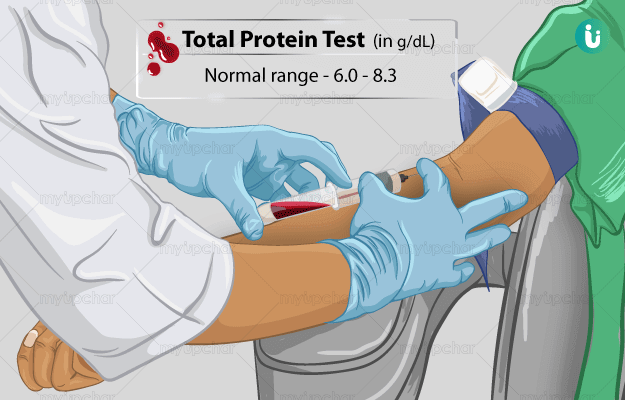What is Total Protein test?
The total protein test measures the levels of protein in your bloodstream.
Proteins are the essential building blocks of body tissues and cells. They are responsible for the production of hormones and enzymes in the body and play a significant role in the growth, development and overall health of the body.
A protein or total protein test measures two classes of proteins:
- Globulin: Produced by the immune system. Makes up for 40% of the total protein levels
- Albumin: Produced by the liver and makes up about 60% of the total protein
Typically, compared to globulins, albumin is present in a higher amount in blood, which provides a normal albumin/globulin ratio of slightly more than 1.






























